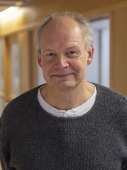The Power of the Ruler and the Ideology of Rulership in Nordic Culture 800-1200
The Power of the Ruler and the Ideology of Rulership in Nordic Culture 800-1200
Principal investigators

Abstract
Power/ideology of rulership is a central element in the development of society, religion and culture in the Nordic societies in the period of transition from the Viking Age to The Middle Ages. By 'nordic societies' is meant the societies within the geographical area of the Nordic countries and the north societies within the North Atlantic islands as well. The period studied will encompass the change of religion in the late Viking Age and this will make terms such as change, transformation and continuity important. Ideology of rulership is deliberately chosen as the focal point for a broad spectre of analyses because the political, social and religious changes in the period become visible in the ideas and practice linked to the kings, earls and chieftains. One of the main theses in the project is that ideology of rulership can be regarded as a focal point for the transformation of the Nordic culture and religion from the 9th to the 13th century. The scholarly debate concerning rulership and its ideological foundation has until now mainly focused on the relationship between the Nordic countries and Europe in the High Middle Ages. The epoch preceding the 12th and the 13th centuries has received little attention, and thus also the questions concerning the pre-Christian contribution and its possible transformations in the Middle Ages. This complex field of research, with broad implications for source criticism, method- and theory-developing, has not yet been underlain a broad, interdisciplinary investigation. The actual group of scholars will represent the fields of history of religion, history, Norse and anglosaxon philology, archaeology and place-name research.
Fellows






